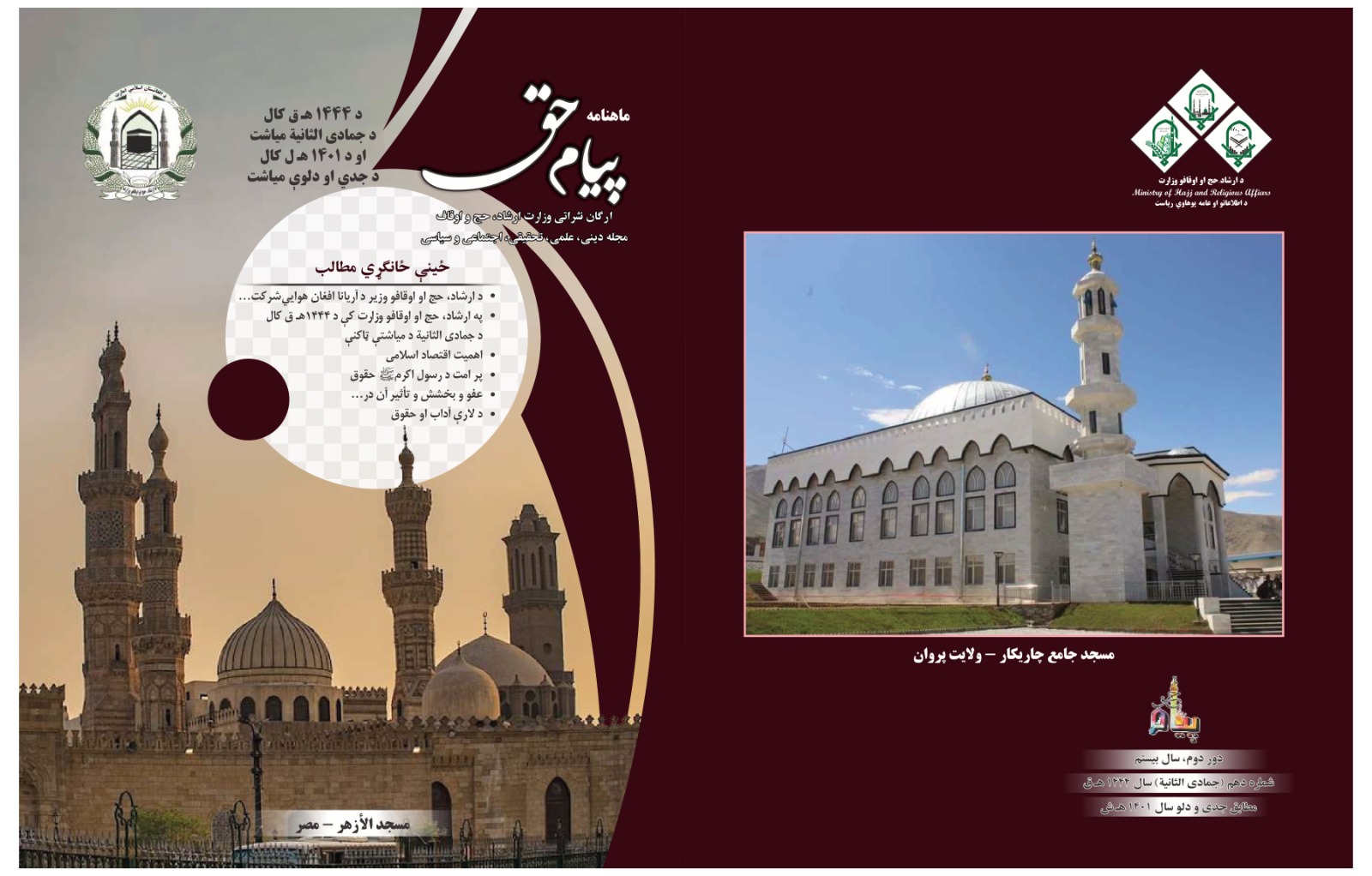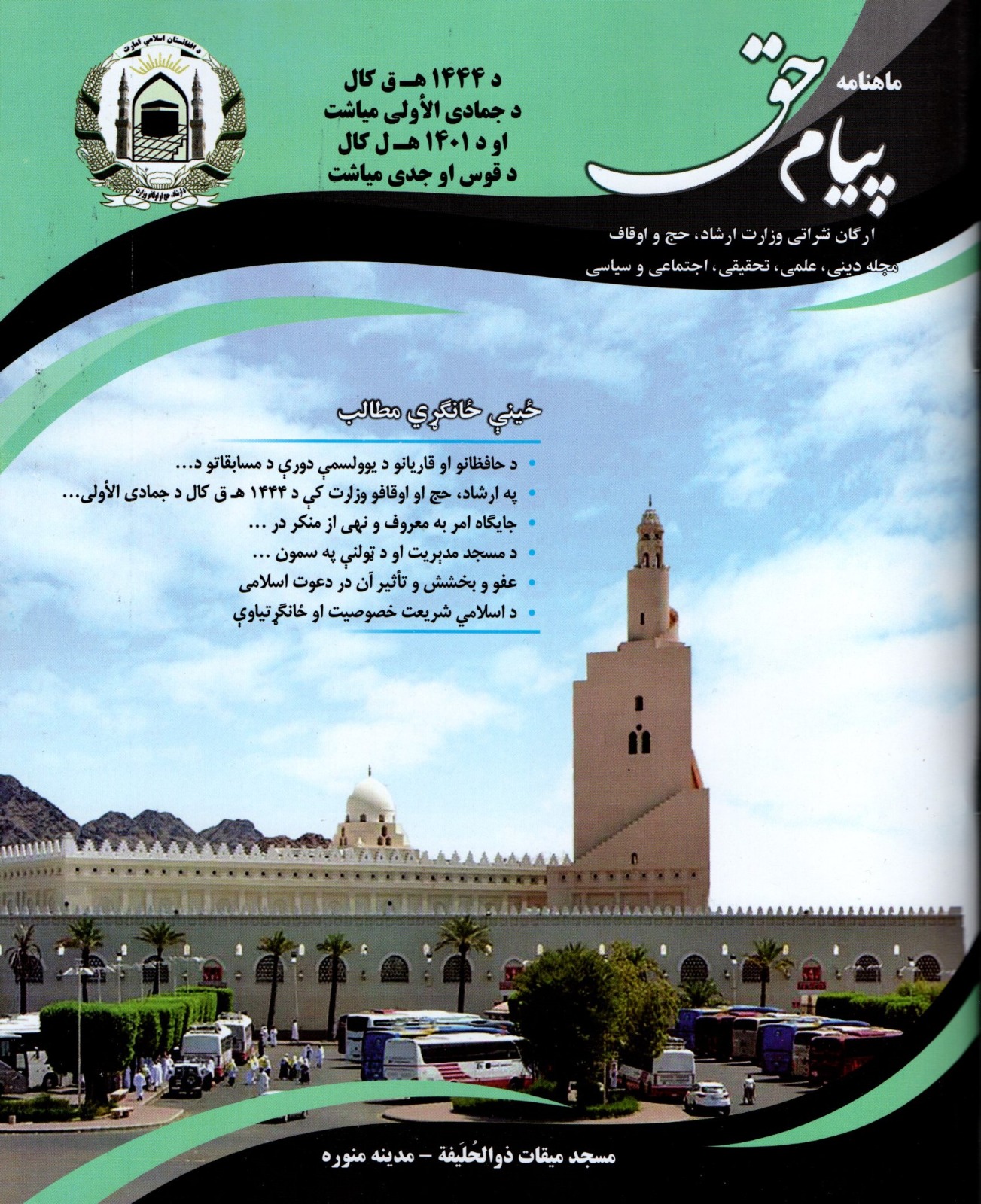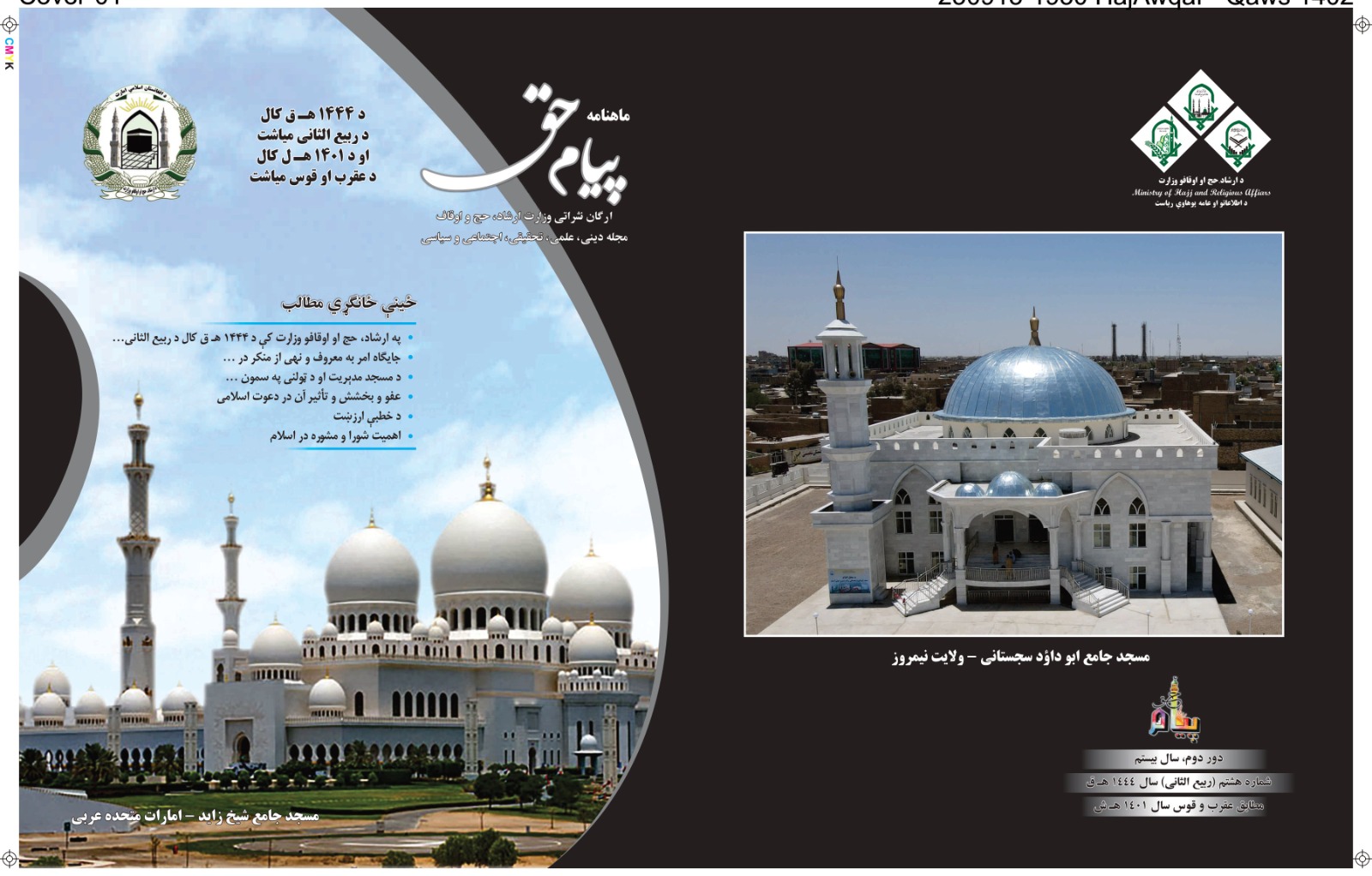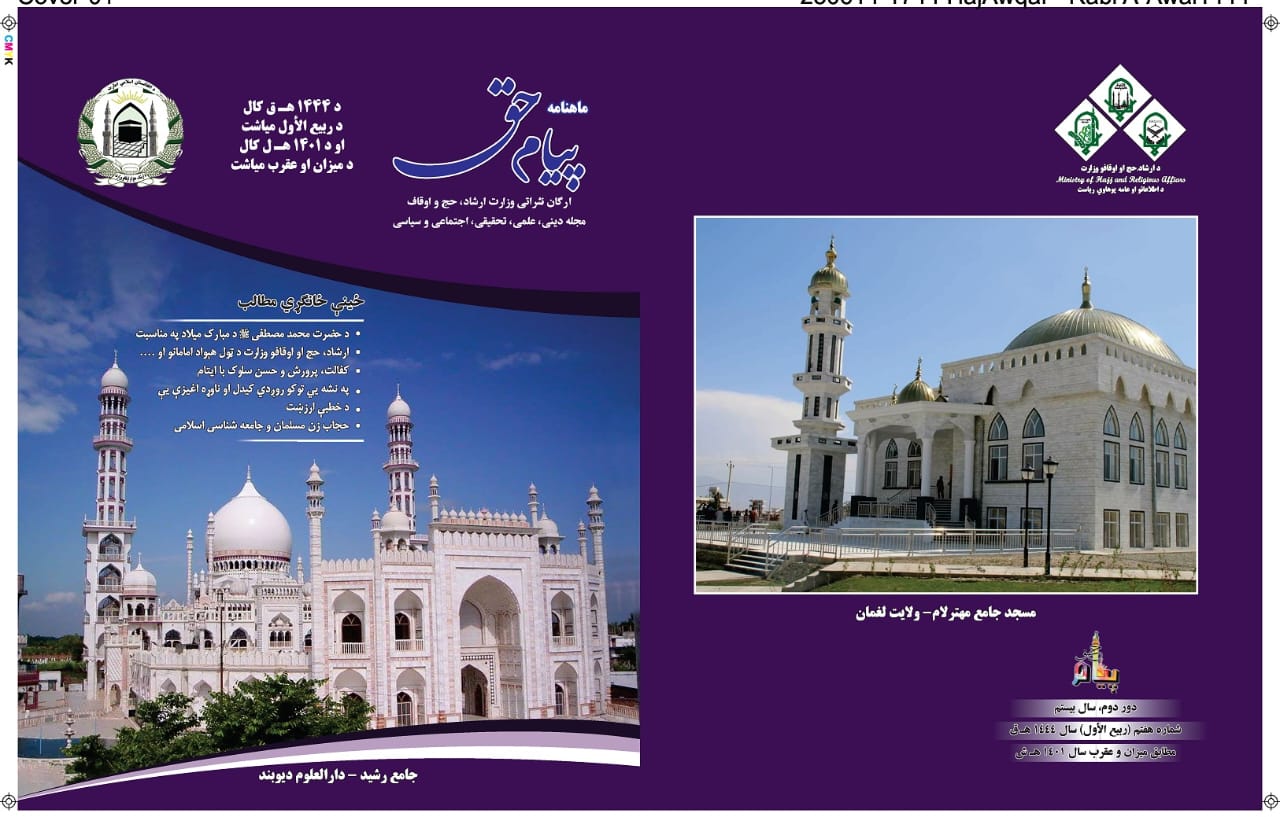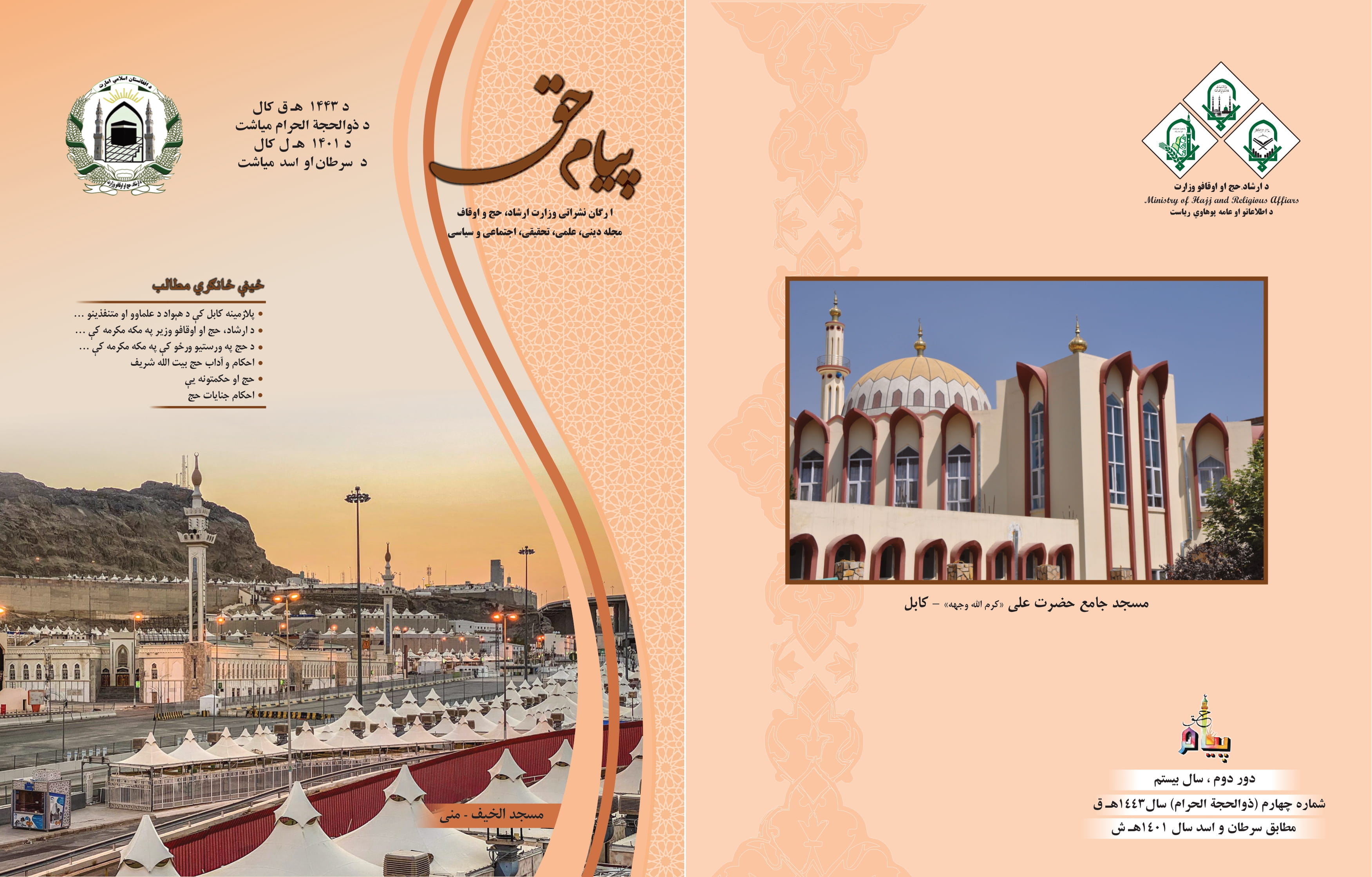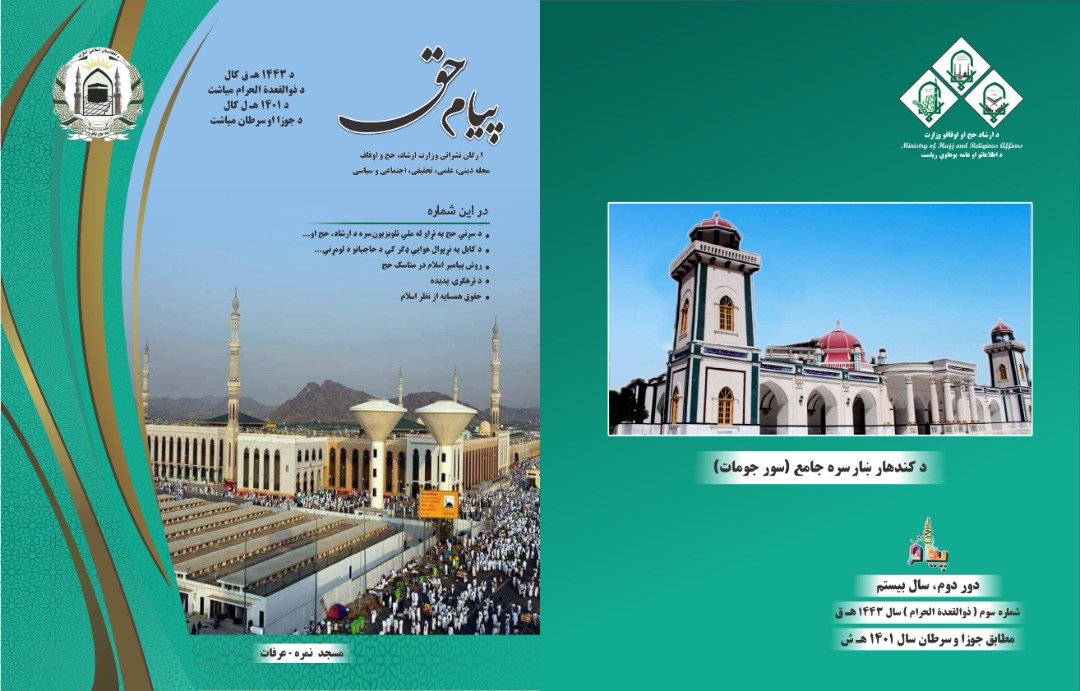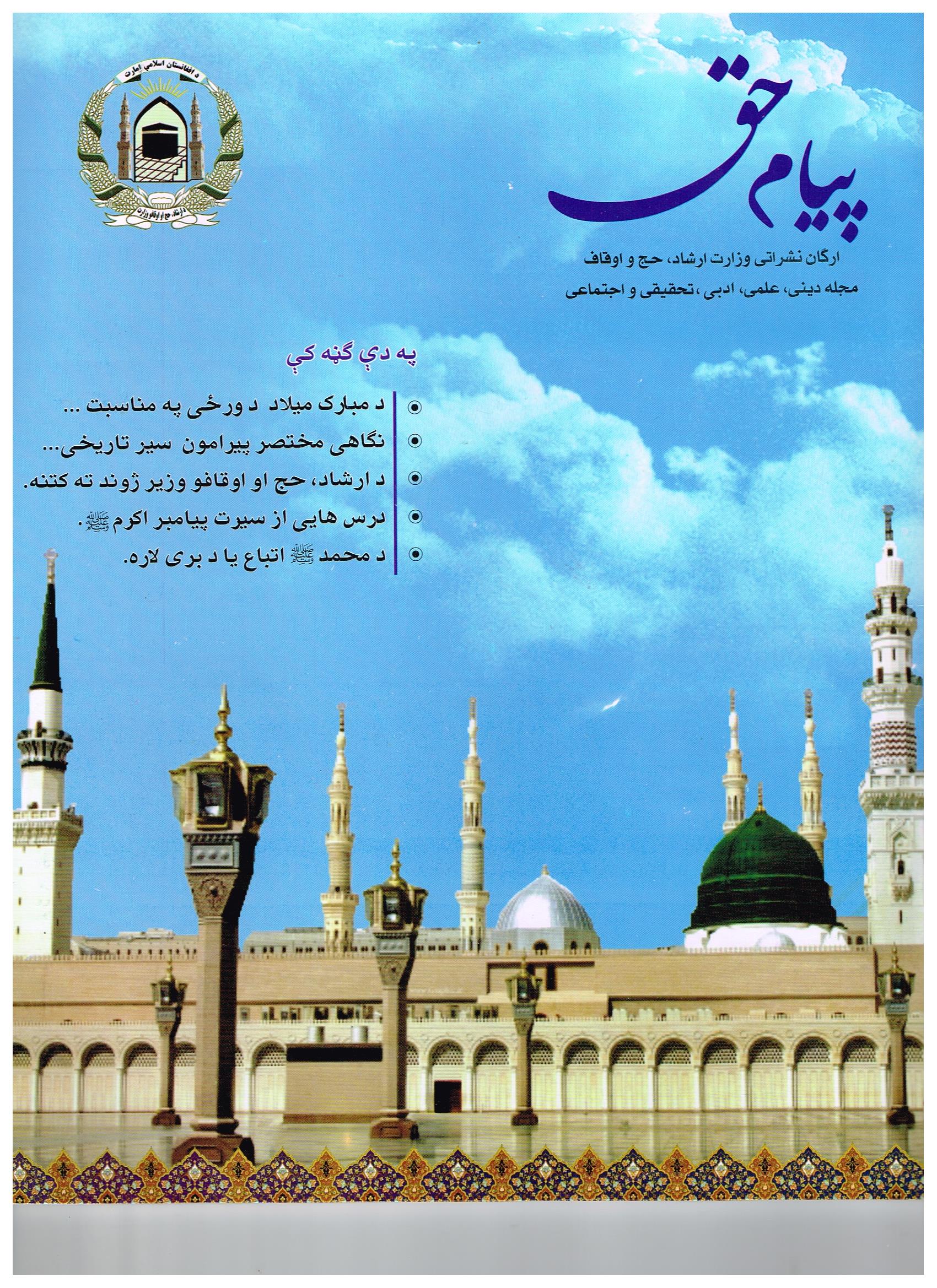History of Ministry of Hajj and Religious Affairs
Based on the urgent necessity of the Afghan community and the decision to establish an office under the name of the High department of Awqaf, the first time in 1349 it was a nonprofit general-purpose partnership in the Ministry of Justice, and it worked on issues related to: Registration, extradition and acquisition of properties and Awqaf property, immovable and movable property, shrines, regulation and Coherence of mosques, etc.), which began to work in a rented building in first Macroyan.
The Honorary chief of Awqaf department was Mohammad Zaher Shah, the king of the time and its chairman was Sayed Hakim Kamal Shinwari, whose affairs were administered by the prosecutor's office in the provinces. This office was dissolved in 1352 AD, after the change of the regime of the kingdom to the republic, and only with the survival of the two general directorate offices Awqaf and Hajj, was comprised to formation of the Great Chancellery. Then, in 1357, Zaynullah "Manly" was appointed as its chief executive officer.
At that time, the agency had four representatives:
1. Representative of Mecca in Saudi Arabia (Rebat Afghani, Nader Shahi)
2. Representation in Herat province
3. Representation in Balkh province
4. Representation in Kandahar province.
In 1358, this administration was promoted and named Islamic Shohoon and headed by Dr. Saeed Afghani as the first Chief, and at that time the current Ministry’s compass purchased from the Islamic Shoohon budget and the agency supplant there.
In 1362, the Islamic Shohoon Department promoted to the Islamic Shohoon Ministry, and Abdul Wali Hujat became the first minister of Islamic Shonoon. After his departure, Abdul Jamil Zarifi was appointed as Minister.
After Abdul Jamil Zarifi, Seddiq Sylani, then Abdul Ghafoor "Baher" was appointed as the Minister of Islamic Shohoon, after that Mawlavi Arsalan "Rahmani" and then Sakhidad "Fayez" and later with the coming of the Taliban regime Abdul Shokur as Minister of Islamic Shohoon.
Unfortunately, in 1376, during the Taliban reign, Ministry discounted and named Hajj and Awqaf Deputy Ministry which belongs to ministry of Justice Compulsory Education and the council of scholars and clerics worked on this section.
In 1378, the Hajj and Awqaf Deputy ministry was promoted for the second time to Ministry of Hajj and Awqaf, and Abdul Shokor was appointed as Minister of Hajj and Awqaf and then Hafez Mohebullah Sayed Ghiyasuddin Agha.
In 1381, the ministry of Amer Bel Marouf discounted to a department and named Islamic Guidance and dissolved to Ministry of Hajj and Awqaf, so after that ministry of Hajj and Awqaf changed its name to the Ministry of Hajj and Religious Affairs, which was headed by Mawlavi Mohammad Hanif Balkhi as Minister. Then Mohammad Amin Nasiriyar, and then Nematullah Shahrani, after that Sediq Chakari, occupied. Later, in 2009, Dr. Mohammad Yusuf Niazi was appointmented as Minister of Hajj and Religious Affairs, then Mr Faiz Mohammad Osmani and now Mr. Abdull Hakim Monib is working as the Minister of Hajj and Religious Affairs.
The ministry of guidance of Hajj and Religious Affairs from its primary up to now has been arranging and organizing the affairs of the Awqaf, pilgrimages, mosques and publications. In general, according to the necessity of our traditional and Afghan society, we have other departments including the Directorate for the Coordination of Affairs of the Directorate of Documents and Communication, Directorate of Policy and Coordination, the Finance Directorate) also added to ministry’s formation. Currently ministry of Hajj and Religious Affairs has two deputy ministers, four advisors, and five advisors out of its formation that all its found pays by Ministry of Economy. And with the merger Hetesab Directorate from Supreme to ministry of Hajj and Religious Affairs the number of its headship increased to 15 centeral directrotare and the personal increased to total (8330), including imams and preachers of mosques and Takaya personnel and the religious sites which are active across the country.In addition, according to the needs, the number of other departments has also been recruited in the ministry, including the Islamic Studies Research Department, the head of the scientific , but the second units of the ministry are also in the province under the name of the Directorates of ministry of Hajj and Religious affairs.
